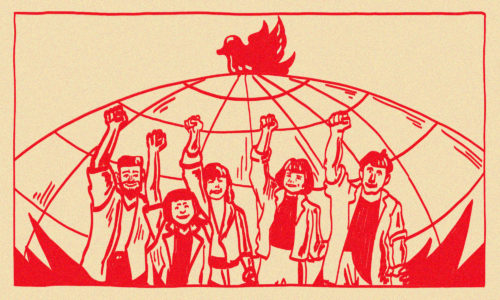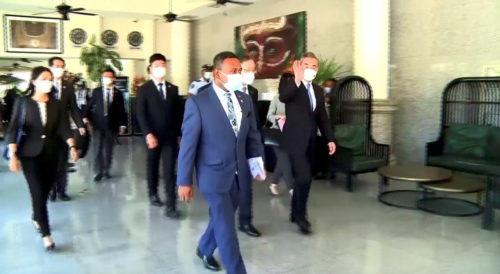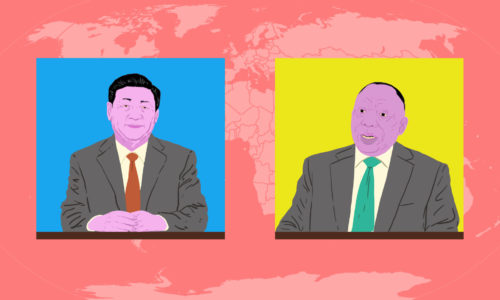Southern View is a weekly column that looks at China’s relations with developing countries from developing countries’ point of view.
Remember when poor countries didn’t matter? Those halcyon days when an American president could call them shitholes and nobody would mind? Those days have just ended.
In case you missed it, the Wall Street Journal broke a story in June that China will pay Cuba several billion dollars to set up a listening station 100 miles from Florida.
Now it’s important to say that the U.S., Chinese, and Cuban governments either denied or deflected the allegation and much remains unclear. And the Cuban situation itself is not a game changer, but it’s the clearest indication yet of a wider geopolitical trend. This same crisis will keep returning in different guises.
While Washington built a China strategy dependent on coalitions of (mostly) rich countries like the Five Eyes and the Quad, China has done the opposite — diplomacy with poor country after poor country after poor country.
And there are more poor countries than rich ones. We’re everywhere. (I am from South Africa.)
Whose rules?
The Ukraine war gave the U.S. its first inkling that the Global South won’t simply fall into geopolitical line. But compared with Russia’s scattershot influence-building in poor countries like my own, China has been much more efficient and thorough.
The effect has been an ongoing game of whack-a-mole. State Department officials have been rushing off to places like Equatorial Guinea and the Solomon Islands to stop those governments from hosting Chinese military bases, and the Biden administration has pushed infrastructure-building initiatives like the G7’s Partnership for Global Infrastructure Investment (PGII), to compete with China’s Belt and Road Initiative (BRI).
Promises of investment have been welcomed, but developing countries are also not holding their breath. They’re well aware that funding is beholden to a Western private sector with its own priorities. And anyway — whether PGII will still be a thing after the U.S. presidential election in 2024 remains an open question.
U.S. officials tend to counter these doubts by pointing out that the necessary disruptions inherent to U.S. democratic cycles are undergirded by Washington’s shepherding of the rules-based international order.
The problem is, this system tends to look different from the North and the South. The North sees imperfect but rational mechanisms for order, like visa regulations, or credit ratings. The South sees a set of tools to keep it perpetually trapped and poor.
These differences run deep and they structure entire worldviews. As someone from a tiny country, I’m frequently amazed at how some U.S. respondents see the loss of its position as the world’s number one economy as a kind of symbolic death. As if life as the globe’s second-richest country is the same as being hit by an asteroid.
A similar, rich-country tunnel vision seems to inform current China-containment policies. There is an assumption that China wants to replace U.S. power on a one-to-one level. This then fuels an expectation of a future bipolar order in which the U.S. needs to gather countries that matter (i.e., rich ones) to most efficiently counter a Chinese threat.
Money and multipolarity
But recent research from the European Council on Foreign Relations reveals a very different view on the other side. Polled publics in places like India and Turkey don’t see the future as bipolar. Rather, they expect to rise just as China has, toward a complex multipolar future. More specifically, they think the U.S. and its allies are losing their unique power to structure world systems. The rules-based international order looks different from different places.
This expectation of multipolarity is a much more fundamental challenge to U.S. global primacy than China’s rise alone, and nobody knows this better than the people setting the diplomatic, trade, and aid policies in Beijing. Underlying Chinese officials’ engagement with counterparts from places like Sierra Leone, Honduras, Ethiopia, Tajikistan, and Barbados (a sample from the last month alone) is an awareness that simply criticizing “Western double standards” is enough to get a conversation started.
Add Chinese market access and now you’re talking. China’s trade with Africa in the first quarter of 2023 ($58.9 billion) was almost triple that of the U.S. ($21.8 billion) during the same period. That buys a lot of attention.
This makes me think that even if Washington roots out Cuba’s listening station, others will follow in America’s backyard. Each poor country chafes under the current international system in its own way. But they’re all chafing. There’s no way of challenging this dynamic without changing the system itself, and not changing the system is seemingly the point of the entire exercise for the U.S.
Meanwhile, China will just keep showing up in the Global South. Because all it needs to do is pretend these countries matter.






